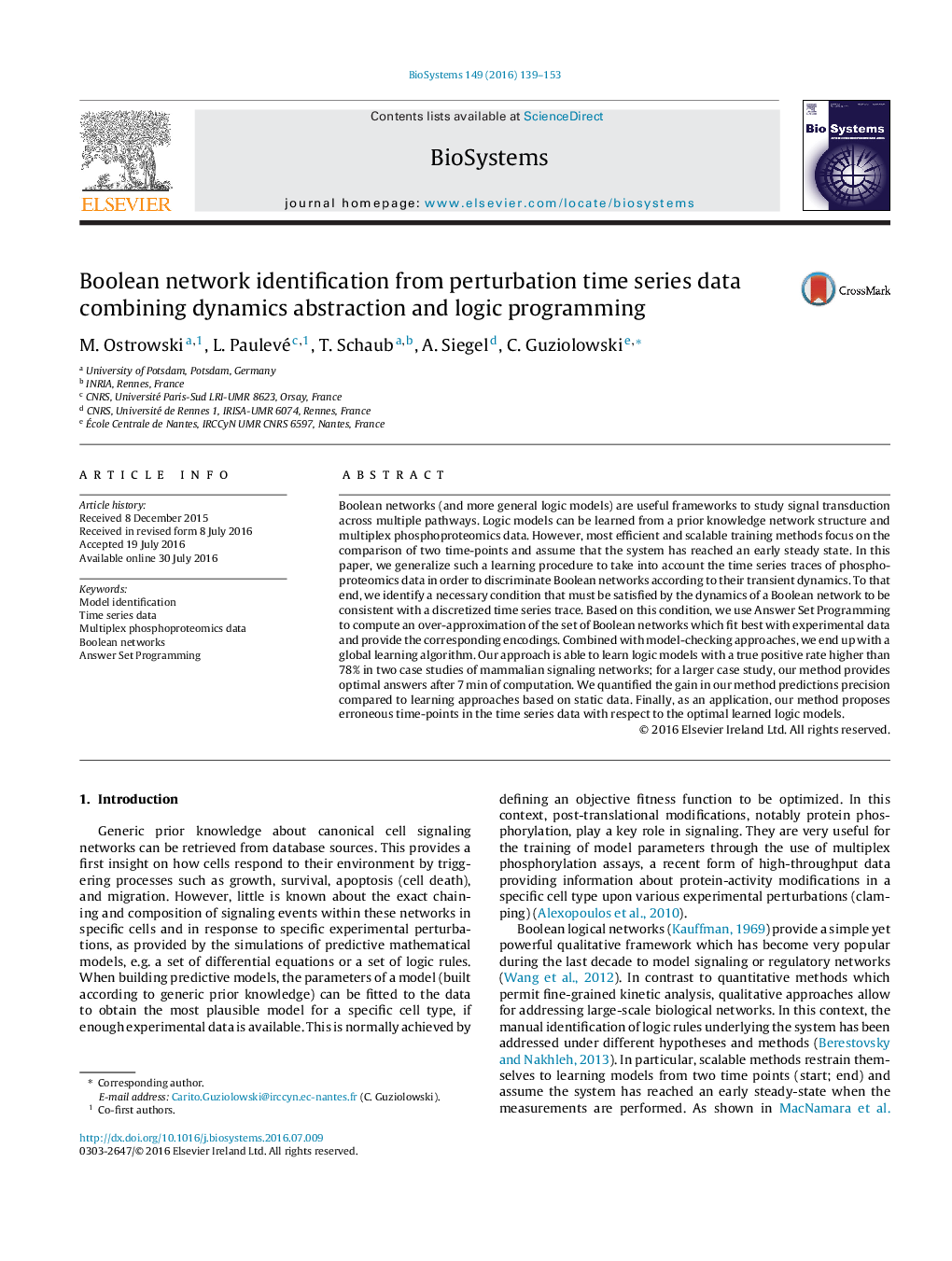| Article ID | Journal | Published Year | Pages | File Type |
|---|---|---|---|---|
| 5520721 | Biosystems | 2016 | 15 Pages |
Boolean networks (and more general logic models) are useful frameworks to study signal transduction across multiple pathways. Logic models can be learned from a prior knowledge network structure and multiplex phosphoproteomics data. However, most efficient and scalable training methods focus on the comparison of two time-points and assume that the system has reached an early steady state. In this paper, we generalize such a learning procedure to take into account the time series traces of phosphoproteomics data in order to discriminate Boolean networks according to their transient dynamics. To that end, we identify a necessary condition that must be satisfied by the dynamics of a Boolean network to be consistent with a discretized time series trace. Based on this condition, we use Answer Set Programming to compute an over-approximation of the set of Boolean networks which fit best with experimental data and provide the corresponding encodings. Combined with model-checking approaches, we end up with a global learning algorithm. Our approach is able to learn logic models with a true positive rate higher than 78% in two case studies of mammalian signaling networks; for a larger case study, our method provides optimal answers after 7Â min of computation. We quantified the gain in our method predictions precision compared to learning approaches based on static data. Finally, as an application, our method proposes erroneous time-points in the time series data with respect to the optimal learned logic models.
